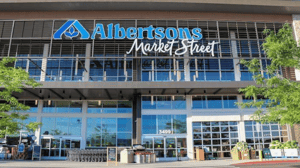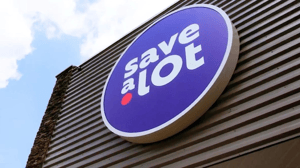The Price of Emotional Connection for Grocery StoresThe Price of Emotional Connection for Grocery Stores
Traditional grocers may take for granted that they have an advantage over non-traditional channels in the strength of their emotional connection with shoppers, but that doesn’t appear to be the case at all.
March 11, 2019

Sponsored by dunnhumby
The traditional, regional grocery store—it’s the institution that has fed communities for decades and families for generations. it offers that connection to a simpler time, a time when the guy behind the meat counter would know customers by name, a time when a dad pushed his child around in a shopping cart while they “helped” him shop and a time before mobile phones invaded our lives and sped up the pace of life…
That place—the traditional grocery store—has history. Customers and the people who work there are part of a family. That kind of emotional connection is priceless.
If this is true, then why does Aldi—which borrows a quarter per shopping cart and operates with a small crew that arranges shelves while taking care of customers—have a stronger emotional connection with shoppers than 90% of its competitors?
Yes, that’s right—Aldi, known for its cost cutting and low prices, has– an emotional connection that is stronger than nine out of 10 traditional grocery stores.
Traditional grocers may take for granted that they have an advantage over non-traditional channels in the strength of their emotional connection with shoppers, but that doesn’t appear to be the case at all. So just how bad is it for traditional grocers?

The inconvenient truth is that the average traditional grocery store has a lower emotional connection with its shopper than the average store in any other major channel where groceries are sold. While traditional grocers have been focused on selling groceries to the same towns for decades, non-traditional grocers have been able to move into those towns and secure a stronger emotional connection in far less time.
How? Well, it appears that emotional connection does have a price, after all. In fact, price perception is slightly more associated with emotional connection than perception of the quality of products and store experience:


And, whereas traditional grocers have managed to hold their own on quality perceptions, they lose on price perception.


So, where does the traditional grocer start if they want to win back the hearts of their local constituents? After all, there are many levers they can pull within pricing, assortment, and store experience to move perceptions. A close look at data from dunnhumby’s 2019 Retailer Preference Index: Grocery Channel Edition offers some hints. Stores who have the strongest emotional connection separate themselves from the pack with the following:
Private brands that customers love
Leading prices on natural and organic items
Fast checkout
Staff who show they value shoppers
Translated into language customers might use, that means:
Have products I can’t get anywhere else, at competitive prices
Make healthy food affordable
Don’t waste my time
Treat me like a person
Of the 56 retailers ranked by emotional connection, 24 of the bottom 25 are traditional retailers. And while Aldi, ranked 17th for emotional connection, has been used as a stark example to illustrate traditional grocers’ emotional connection issue, many other non-traditional stores have a stronger emotional connection with their shoppers than Aldi does with theirs.
However, 3 traditional grocery stores buck the trend and join non-traditional retailers in the top 10: Market Basket (4th), H-E-B (5th) and Publix (6th). They each check more than one of the boxes on the core ingredients of emotional connection.

These retailers, more than any other traditional, regional grocer,have established with their emotional connection an insurance policy for an uncertain grocery industry future. And the prevalence of non-traditional grocers with superior emotional connection proves the point that this insurance policy is more a product of “what have you done for me lately” than a product of consumer nostalgia. Non-traditional grocers are buying emotional connection with better prices while delivering on some combination of a superior private label, offering the best natural and organic prices and having staff who show they value customers.
You May Also Like




